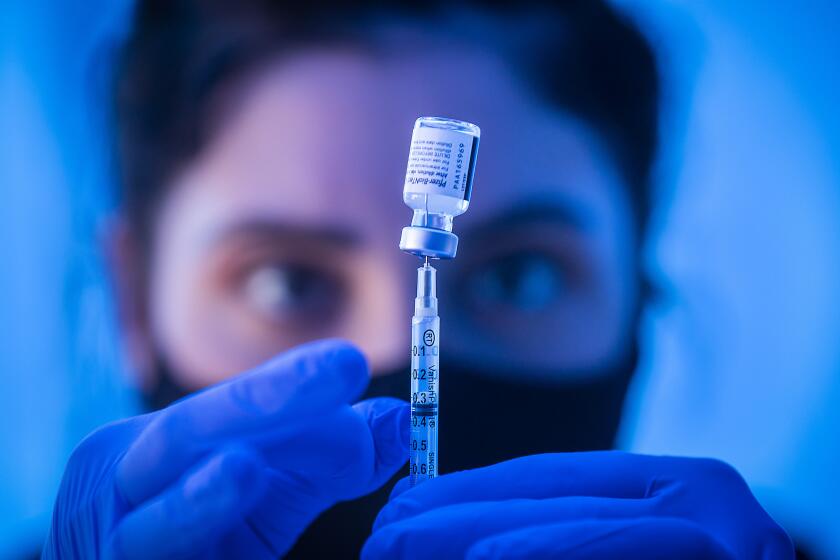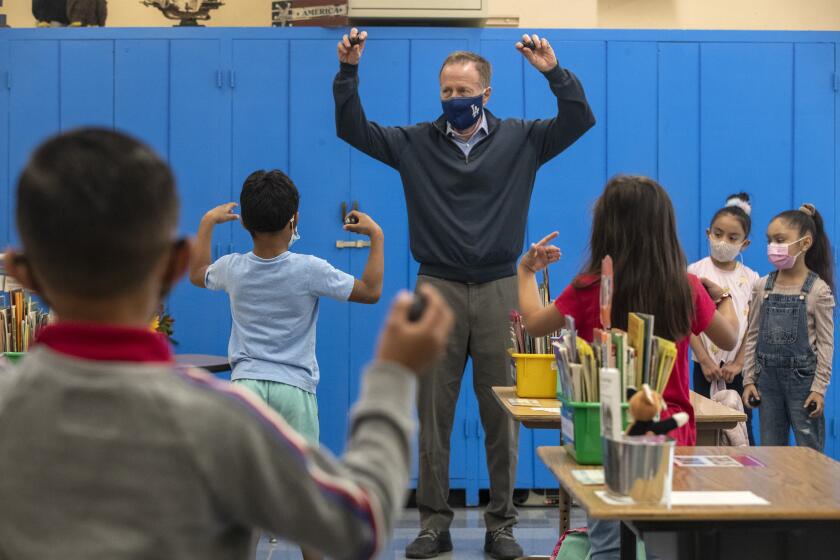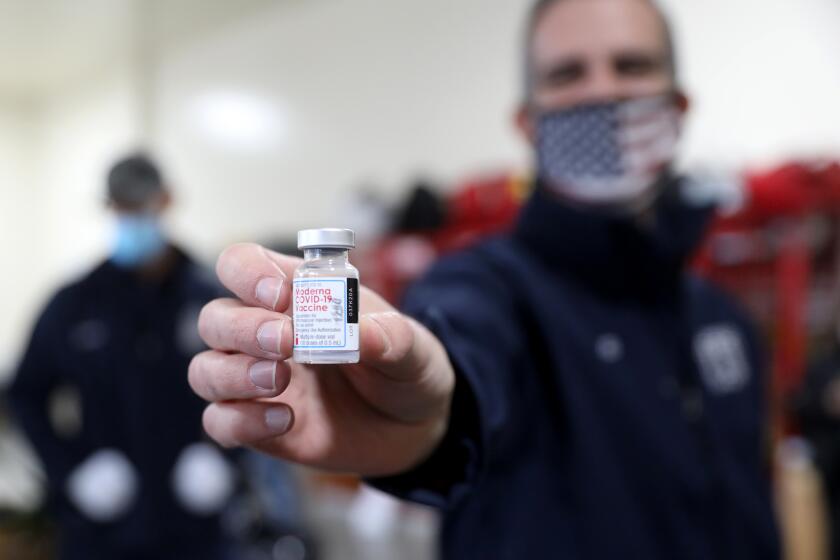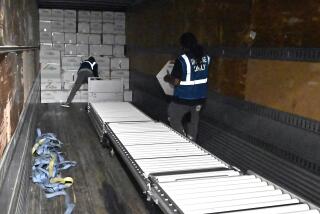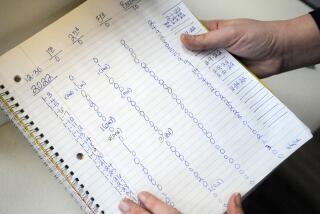Drop in COVID vaccine demand — and willingness — has some places turning down doses
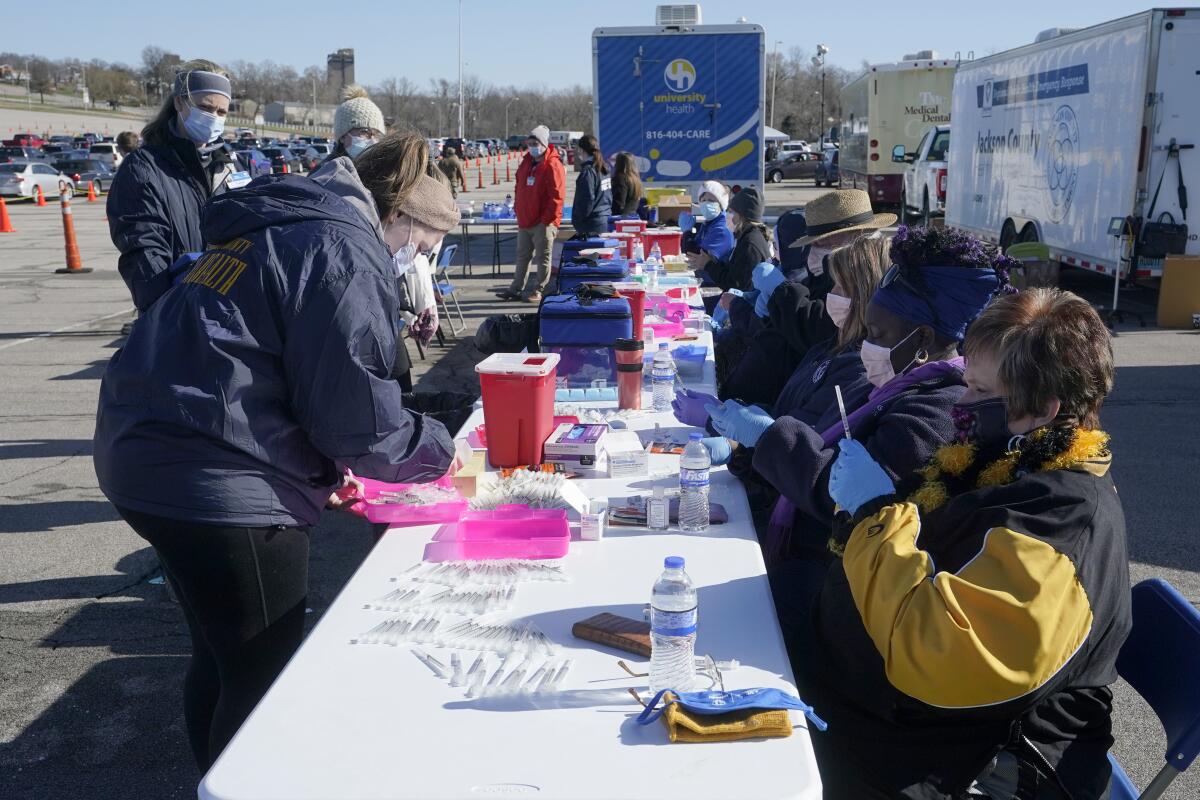
- Share via
JACKSON, Miss. — Louisiana has stopped asking the federal government for its full allotment of COVID-19 vaccine. About three-quarters of Kansas counties have turned down new shipments at least once over the past month. And in Mississippi, officials asked the federal government to ship vials in smaller packages so they don’t go to waste.
As the supply of COVID-19 vaccine doses in the U.S. outpaces demand, some places around the country are finding there’s such little interest in the shots that they need to turn down shipments.
“It is kind of stalling. Some people just don’t want it,” said Stacey Hileman, a nurse with the health department in rural Kansas’ Decatur County, where less than a third of the county’s 2,900 residents have received at least one vaccine dose.
The dwindling demand for vaccines illustrates the challenge that the U.S. faces in trying to conquer the pandemic while at the same time dealing with the optics of tens of thousands of doses sitting on shelves when countries like India and Brazil are in the midst of full-blown medical emergencies.
More than half of American adults have received at least one vaccine dose, and President Biden this week celebrated the surpassing of 200 million doses administered in his first 100 days in office. He also acknowledged entering a new phase to bolster outreach and overcome vaccine hesitancy.
Across the country, pharmacists and public health officials are seeing demand wane and supplies build up. About half of Iowa’s counties have stopped asking for new doses from the state, and Louisiana didn’t seek shipment of some vaccine doses over the past week.
New COVID-19 vaccination clinics at the Palmdale and Lancaster Metrolink stations will offer free shots with no appointments required.
Some are urging federal officials to send more vaccine to places where there’s demand — rather than allocate them based on population — including Massachusetts Republican Gov. Charlie Baker, who said Thursday that his state could administer two to three times more doses per day if it had more supply.
In Mississippi, small-town pharmacist Robin Jackson has been practically begging anyone in the community to show up and get shots after she received her first shipment of vaccine earlier this month and demand was weak, even though she placed signs outside her storefront celebrating the shipment’s arrival. She was wasting more vaccine than she was giving out and started coaxing family members into the pharmacy for shots.
“Nobody was coming,” she said. “And I mean no one.”
In Barber County, Kansas, which has turned down vaccine doses from the state for two of the past four weeks, Danielle Farr said she has no plans to be vaccinated. The 32-year-old said she got COVID-19 last year, along with her 5- and 12-year-old sons and her husband.
Blood tests detected antibodies for the virus in all four of them, so she figures they’re already protected.
California’s latest seven-day new case rate — 40.3 per 100,000 people — is dramatically lower than the nationwide rate of 135.3 over that same time period.
“I believe in vaccines that have eradicated terrible diseases for the past 60, 70 years. I totally and fully believe in that,” said Farr, who works at an accounting firm. “Now a vaccine that was rushed in six, seven months, I’m just going to be a little bit more cautious about what I choose to put into my body.”
Barbara Gennaro, a stay-at-home mother of two small children in Yazoo City, Miss., said everybody in her home-schooling community is against getting the vaccine. Gennaro said she generally avoids vaccinations for her family in general, and the COVID-19 shot is no different.
“All of the strong Christians that I associate with are against it,” she said. “Fear is what drives people to get the vaccine, plain and simple. The stronger someone’s trust is in the Lord, the least likely they are to want the vaccine or feel that it’s necessary.”
Another challenge for vaccinations in a rural state like Mississippi is that, in many cases, doses are being shipped in large packages, with each vial containing at least 10 doses.
At a news conference in early April, Republican Gov. Tate Reeves said Mississippi officials have requested that the federal government send the vaccines in smaller packaging so none goes to waste.
“If you’re in New York City, and you’re sending a package to one of the large pharmacies in downtown Manhattan, there are literally millions and millions of people within walking distance most likely of that particular pharmacy,” Reeves said. “Well, if you’re in rural Itta Bena, Miss., that’s just not the case.”
To combat the hesitancy, Louisiana continues to increase its outreach work with community organizations and faith-based leaders, set up a hotline to help people schedule appointments and work to find free transportation to a vaccination center. The health department is sending out more than 100,000 mailers Monday to encourage people to get vaccinated, and robocalls from regional medical directors are going out to landline phones around the state.
In New Mexico, state officials are exploring the recruitment of “community champions” — trusted residents in regions with vaccine hesitancy who can address concerns about safety and efficacy. Question-and-answer style town halls are also a possibility. And video testimonials about COVID-19 vaccines already have been recorded.
Top LAFD brass are using free Lyft rides, Google Nest gear and home security systems to entice firefighters unwilling to get a COVID-19 vaccine.
Nirav Shah, director of the Maine Center for Disease Control and Prevention and the president of the Assn. of State and Territorial Health Officials, said now that everyone qualifies to get vaccinated, public health officials are encountering three groups: “not able,” “not now” and “not ever.”
The first group, he said, isn’t able to get inoculated because people don’t have time. The “not nows” have earnest questions about vaccine safety, efficacy and whether they need the shot.
He said they’re not prepared to write off “not evers,” but instead are “working to find trusted messengers like doctors, family members, community members” to give them good information.
In Corinth, Miss., pharmacist Austin Bullard said a lot of people were waiting to become vaccinated until a one-dose shot became available. The news about the Johnson & Johnson vaccine and the risk of blood clots — however slim — has scared people about getting any type of vaccination.
“I do feel like there has been more hesitancy across the board since then,” he said.
More to Read
Sign up for Essential California
The most important California stories and recommendations in your inbox every morning.
You may occasionally receive promotional content from the Los Angeles Times.
